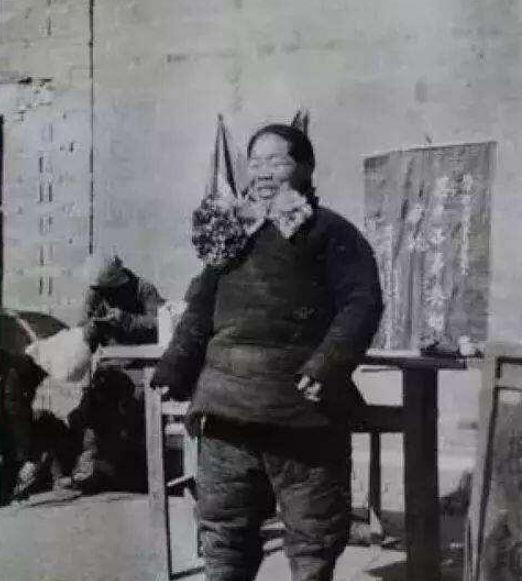In the fourteen years of the War of Resistance Against Japanese Aggression, countless heroes who fought for the country were born. Among them, there are many female streamers. The character we want to talk about today, Li Xingge, is one of these patriotic mothers. Anping, Hebei, was an important place in Hebei during the War of Resistance Against Japanese Aggression. On February 9, 1939, after the Japanese army captured the area, they vigorously implemented the "three lights" policy for our compatriots. In the face of the atrocities of the invaders, the people of Anping did not flinch. They wrestled with the Japanese in various ways, and Li Xingge was one of them. She was born in a poor family, and when she was young, she suffered from human suffering. After marriage, because all the fertile land was occupied by the Japanese Kou, the family's livelihood was mainly supported by her husband's short-term work, and life was very difficult. It wasn't until the arrival of the Eighth Route Army that their family's condition was a little better. It is precisely because of this that Li Xingge will firmly devote himself to the anti-Japanese struggle.

▲ Li Xingge (1901-1964), a peasant woman in Jizhong who was later known as the "mother of the children and soldiers".
In early May 1942, the Japanese army concentrated 50,000 people to carry out a large-scale "sweep" around the Jizhong Plain. Anping, which is in the core area, bears the brunt of it. In just two months, the enemy built 8 artillery towers and 27 strongholds in the county seat, villages and towns, and on the surrounding roads, while adding more than 2,000 troops. These people will "sweep" the countryside every three to five places, and do no evil. In such a difficult struggle environment, Li Xingge did not flinch in the slightest. At first, she was only responsible for caring for 1-2 wounded. Later, as the number of wounded increased, she simply vacated her house and set up a secret "temporary ward". And that's not enough, there are also hidden tunnels in the yard to hide the seriously injured, medicines, and medical equipment. The fighting became more and more brutal, and Li Xingge's work became busier.
▲ Li Xingge, who takes care of the seriously injured.
At that time, the soldiers in the Jizhong region also specially compiled a song and ballad: "The drums of the anti-Japanese war in Jizhong sounded, and there was a Li Lady in the Baozi camp." Lady Li is enthusiastic and loves her children and soldiers." This "Lady Li" is talking about Li Xingge. On weekdays, there are not many medical staff in the temporary ward, so in addition to taking care of nursing work such as feeding the wounded and taking medicine, Li Xingge also has to make a fire to cook, wash and dry clothes. Although she was an ordinary peasant woman, Li Xingge was not idle. Whenever a nurse nursed a wounded soldier, she would always watch carefully from the sidelines, remembering every detail of what others had done. Her every movement was cautious and subtle, patiently watching the wounded man's expression. Over time, the warriors praised the "craftsmanship" of the 40-year-old little-footed lady. When the weather is clear, Li Xingge will also take the initiative to carry the wounded who cannot move and take them to the courtyard to bask in the sun. Although bitter, although tired, this strong lady never complained in the slightest.
During the War of Resistance Against Japanese Aggression, Soviet doctors who were performing medical operations on wounded soldiers of the Eighth Route Army.
▲ Li Xingge, the mother of the Jizhong disciples who took the initiative to take care of the wounded and wounded. According to statistics, a total of 73 wounded soldiers were carefully cared for by Li Xingge and returned to the anti-Japanese ranks. It is precisely because of this that the glorious deeds of this mother have spread throughout the Jizhong Plain. In 1944, the Jizhong Military Region held a commendation meeting in Baoziying Village, at which he was awarded a large red flower and a prize flag, and wrote "The Mother of the Children and Soldiers of Jizhong Province". It can be said that this is the proudest moment in Li Xingge's life.
▲ Li Xingge standing in front of the award flag. In 1964, the loving mother died of cancer at the age of 63.